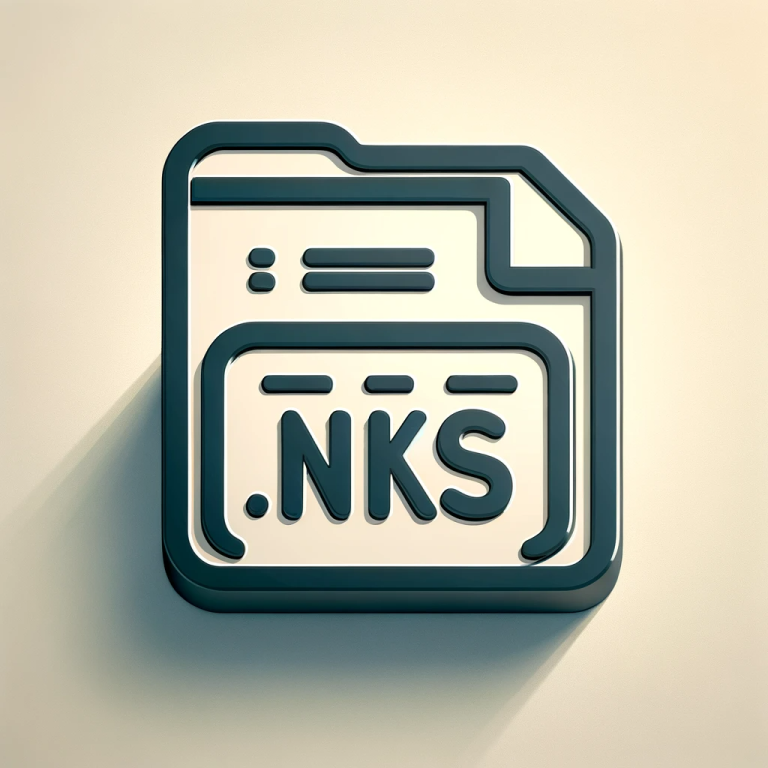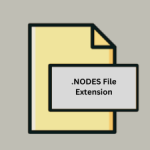.NKS File Extension

Kontakt Monolith Container
| Developer | Native Instruments |
| Popularity | |
| Category | Audio Files |
| Format | .NKS |
| Cross Platform | Update Soon |
What is an NKS file?
The .NKS file extension is primarily associated with Native Instruments, a renowned company in the music software and hardware industry.
Native Instruments has developed a wide array of software and hardware products that cater to musicians, producers, and sound designers.
The .NKS file extension specifically pertains to their Kontrol Monolith Container, which serves as a streamlined method for organizing and accessing instrument libraries, presets, and effects within their ecosystem.
More Information.
The .NKS file extension was first introduced in 2013, marking a significant milestone in Native Instruments’ mission to enhance the user experience for their customers.
Prior to the introduction of .NKS, users often had to deal with various file formats and interfaces when using different Native Instruments instruments and effects.
This lack of consistency could be frustrating and time-consuming. With the introduction of .NKS, Native Instruments aimed to achieve the following objectives:
- Streamlined Access: .NKS files were designed to offer a standardized method for accessing instrument libraries, presets, and effects. Users could expect a consistent and intuitive interface across different products.
- Enhanced Integration: .NKS files were integrated seamlessly into the Native Kontrol Standard (NKS), which allowed users to access their instrument libraries and presets directly from their NKS-compatible hardware controllers.
- Improved Workflow: By unifying the management of their products under a single standard, Native Instruments sought to enhance the workflow of musicians and producers, ultimately making it easier to create music.
Origin Of This File.
The origin of the .NKS file extension can be traced back to Native Instruments’ desire to simplify the management and integration of their extensive range of software instruments and effects.
Recognizing the need for a unified format that would streamline the user experience, they introduced the .NKS format.
This format was designed to work seamlessly with their flagship software, Native Kontrol Standard (NKS), which aims to provide a cohesive interface for all their instruments and effects.
File Structure Technical Specification.
Understanding the file structure and technical specifications of .NKS files is crucial for users who wish to work with them effectively. Here’s a brief overview of the key components:
- Container Format: .NKS files are essentially container files that can encapsulate multiple instrument presets, effects, and related content. They make use of a proprietary file structure designed by Native Instruments.
- Metadata: Each .NKS file contains essential metadata, including information about the instrument or effect it represents, preset names, and categorization details. This metadata is crucial for organizing and searching for specific sounds.
- Sample and Instrument Data: .NKS files may include sample data, instrument settings, and effects configurations. This allows for a comprehensive representation of the sound and settings associated with a particular instrument or effect.
- Compatibility: .NKS files are compatible with Native Instruments’ software, including their flagship product, Kontakt, as well as their hardware controllers and software synthesizers.
How to Convert the File?
Converting .NKS files can be a challenging task due to their proprietary nature and close integration with Native Instruments’ ecosystem.
These files are primarily designed to work seamlessly within Native Instruments’ software and hardware. If you need to convert .NKS files into other formats for specific purposes, here are some methods you can explore:
- Contact the Developer: If you have purchased .NKS libraries from a third-party developer, contact them and inquire if they offer alternative formats or conversion services. Some developers provide multiple formats, such as Kontakt’s native .NKI format or WAV samples, alongside .NKS files.
- Use Native Instruments Software: If your goal is to use the content within Native Instruments’ ecosystem but in a different format, you can often open .NKS files directly in Native Instruments software, such as Kontakt, Massive, or Reaktor. Once the file is open, you can export the content in a different format.
- Third-Party Conversion Tools: Some third-party software utilities are designed to convert .NKS files into other formats, such as WAV, SFZ, or EXS24. These tools may allow you to extract instrument presets, samples, and settings from .NKS containers. Examples of such tools may include Kontakt libraries conversion software or batch conversion tools for audio samples.
- Manual Extraction: For advanced users with a good understanding of file formats and sound design, it is possible to manually extract samples and instrument settings from .NKS containers. This process may involve reverse-engineering the .NKS format, extracting individual elements, and then repackaging them into a different format. Note that this approach can be complex and time-consuming.
- Third-Party Plugins: Some developers have created third-party plugins or scripts that provide limited compatibility with .NKS files in third-party digital audio workstations (DAWs). These plugins act as bridges, allowing you to load .NKS files as VST or AU plugins within your DAW. However, the functionality may be limited compared to using the files within Native Instruments’ software.
- Consider Alternative Formats: If you cannot convert .NKS files successfully, consider looking for alternative sound libraries or formats that are natively supported by your preferred software or DAW. Many sample library developers offer their products in multiple formats to ensure broader compatibility.
- Explore Sound Design Forums and Communities: Sound designers and musicians often share insights and solutions for working with various file formats on forums and community websites. Participating in these discussions can lead to valuable tips and tools for handling .NKS files.
Advantages And Disadvantages.
Advantage:
- Uniformity: The greatest advantage of .NKS files is the uniformity they bring to the Native Instruments ecosystem. Users can seamlessly navigate and use different instruments and effects with a consistent interface.
- Efficiency: .NKS files simplify the process of managing and accessing instrument libraries and presets, saving users valuable time in their music production workflows.
- Hardware Integration: These files are designed to work seamlessly with Native Instruments’ hardware controllers, providing tactile control over instrument parameters.
Disadvantage:
- Vendor-Lock: .NKS files are specific to Native Instruments, which means they are not easily portable to other music production software. Users may find it challenging to collaborate with those using different platforms.
- Limited Compatibility: While .NKS files work well within the Native Instruments ecosystem, they may not be compatible with other third-party software or DAWs, limiting their versatility.
How to Open NKS?
Open In Windows
- Native Instruments Software: Native Instruments’ software, including Kontakt, Massive, and others, is available for Windows. You can open .NKS files directly by launching the relevant software and loading the files within.
- Third-Party DAWs: If you are using a third-party digital audio workstation (DAW) on Windows, some developers offer plugins or tools that provide limited compatibility with .NKS files. These plugins can be used to load .NKS files as VST plugins within your DAW.
Open In Linux
- WINE: You can try using the WINE compatibility layer to run Windows-based Native Instruments software on Linux. While this may not provide full compatibility, it could allow you to open .NKS files.
- Virtual Machine: Running a Windows virtual machine on Linux and installing Native Instruments software within it may provide better compatibility for opening .NKS files.
- Third-Party DAWs: Some Linux-compatible digital audio workstations (DAWs) may support .NKS files through third-party plugins. Check with the developers of your chosen DAW for any available solutions.
Open In MAC
- Native Instruments Software: Native Instruments’ software is fully compatible with macOS. You can open .NKS files by launching the relevant software and loading the files within.
- Third-Party DAWs: If you are using a third-party digital audio workstation (DAW) on macOS, some developers offer plugins or tools that provide limited compatibility with .NKS files. These plugins can be used to load .NKS files as AU plugins within your DAW.
Open In Android
- Convert to Compatible Format: If you have access to a Windows or macOS computer, you can convert .NKS files into a more widely supported format like WAV or MP3. Once converted, you can transfer these files to your Android device for playback using compatible music player apps.
- Explore Third-Party Apps: Some music player apps for Android may support certain sample formats compatible with .NKS files. Check the app’s documentation or contact the developer to see if they can handle such files.
Open In IOS
- Convert to Compatible Format: Similar to Android, you can convert .NKS files into formats like WAV or MP3 on a computer and then transfer them to your iOS device for playback using compatible music player apps.
- Third-Party Apps: Some iOS music apps and synthesizers may support certain sample formats compatible with .NKS files. Check the App Store for apps that can handle such files or consult with developers.
Open in Others
- Virtual Machines or Emulators: Users seeking to open .NKS files on less common operating systems may resort to running virtual machines or emulators to access Native Instruments’ software. While this can work, it can be complex, resource-intensive, and may not offer seamless integration.
- Audio File Conversion: Converting .NKS files to standard audio formats like WAV or MP3 on a Windows or macOS system is a practical approach. Once converted, these files can be used on different operating systems or software.













